How LGBT activism led to NYC’s most notorious bank robbery: The real story behind ‘Dog Day Afternoon’
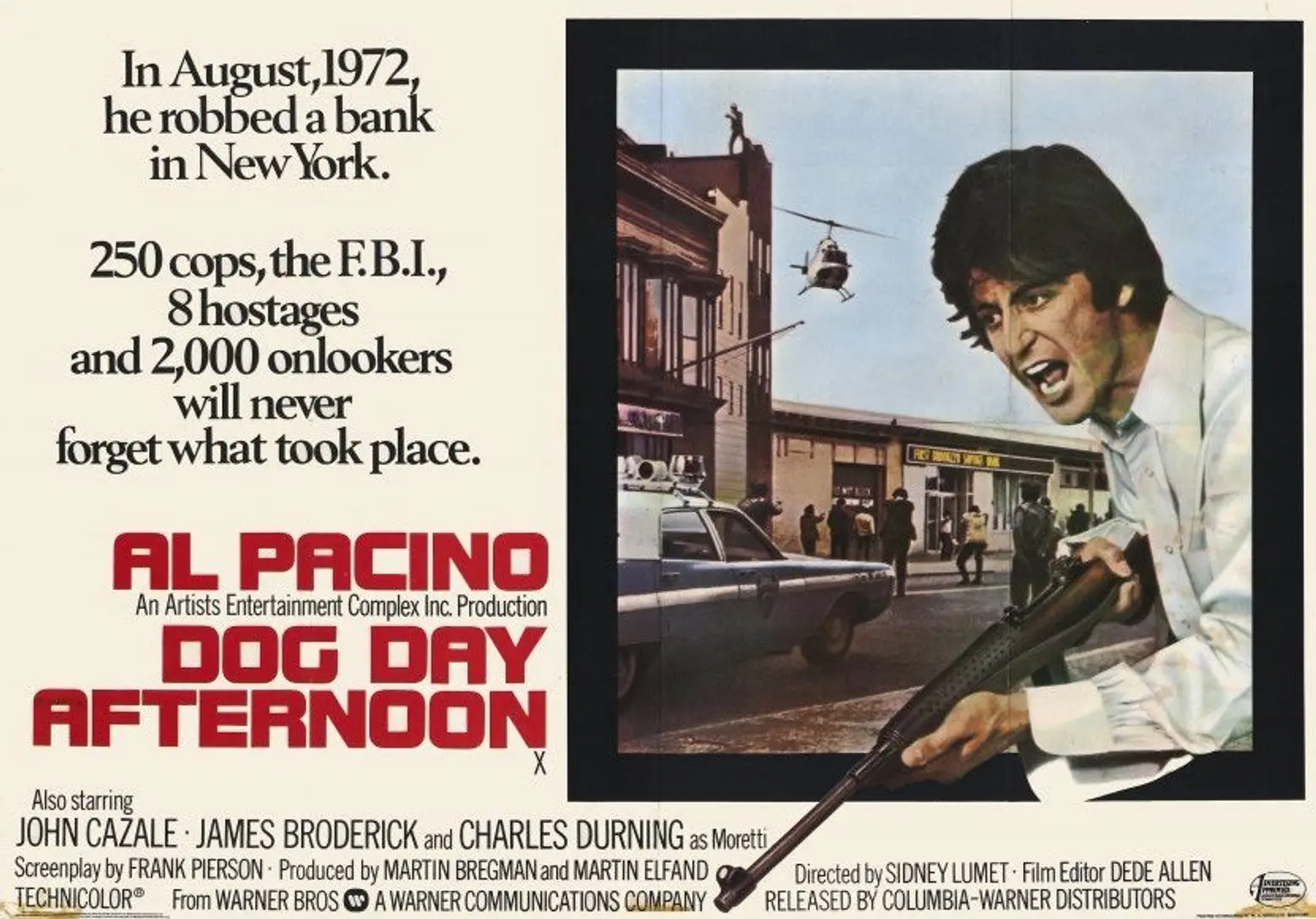
The most notorious bank robbery in New York City history took place on August 22, 1972, during the decidedly dog days of that long hot summer. Immortalized in the film “Dog Day Afternoon,” it was an unlikely anti-hero tale with a backstory that began in Greenwich Village, interwoven with the social and political currents running through the city at the time, most notably the growing LGBT movement that had taken hold after the Stonewall Riots.
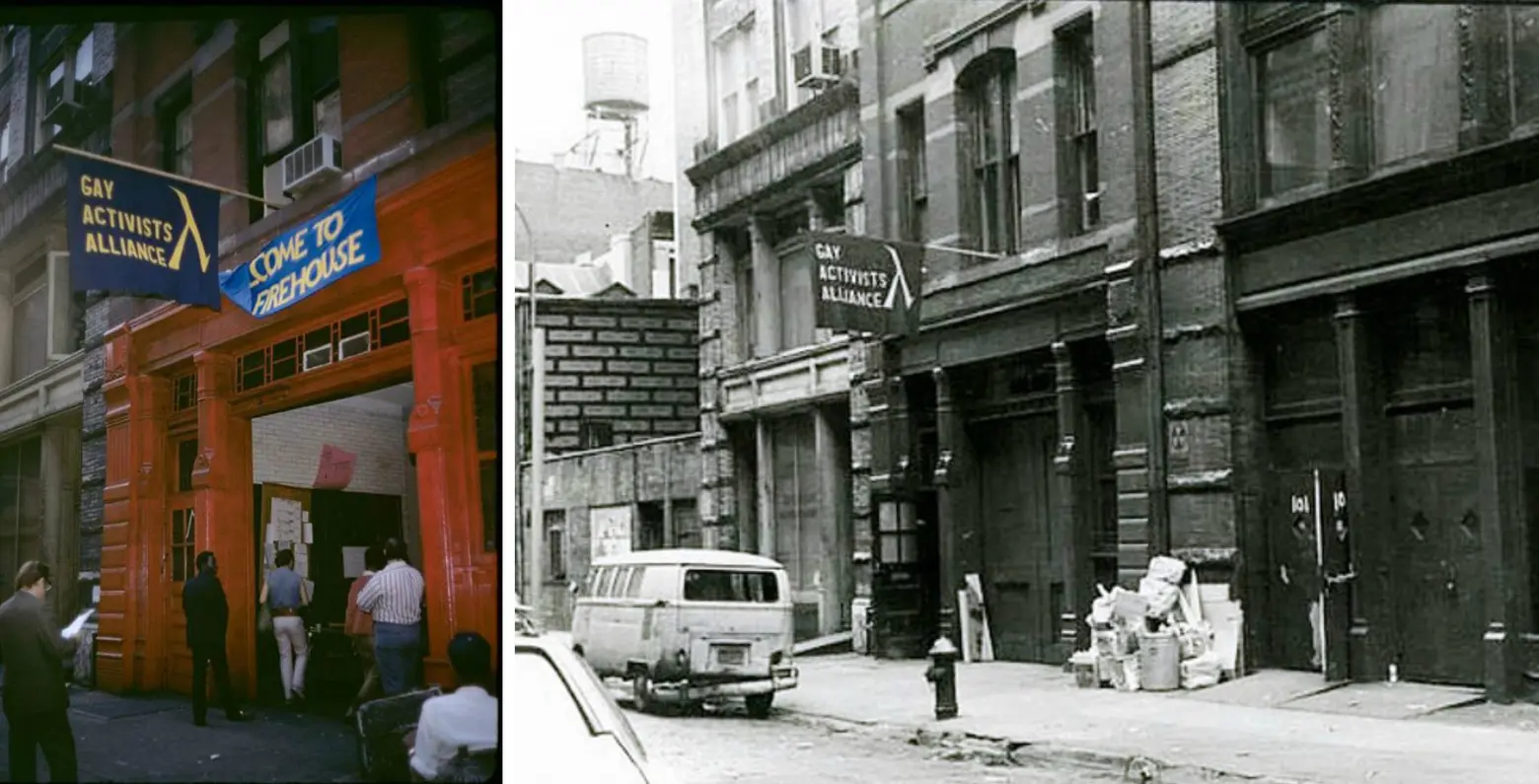 The Gay Activists Alliance’s firehouse in 1971, via NYPL (left); and NYPL (right)
The Gay Activists Alliance’s firehouse in 1971, via NYPL (left); and NYPL (right)
A few months before the robbery, John Wojtowicz married Ernest Aron in what he described as a Roman Catholic ceremony. Wojtowicz lived with Aron in a single-room occupancy hotel at 250 West 10th Street in Greenwich Village (an early 19th-century townhouse which years later was renovated and returned to a single-family home by designer Stephen Gambrel). Both Wojtowicz and Aron were involved with the aforementioned LGBT movement, with Wojtowicz participating in meetings of the Gay Activists Alliance at the nearby GAA Firehouse in Soho.
Both Wojtowicz and Arons faced their challenges. Arons was seeking gender reassignment, but neither he nor Wojtowicz had the money to pay for the surgery required. To try to make this dream a reality, Wojtowicz, a Vietnam veteran and former bank teller, hatched a plan with friends Salvatore Naturile and Robert Westerberg to rob a bank.
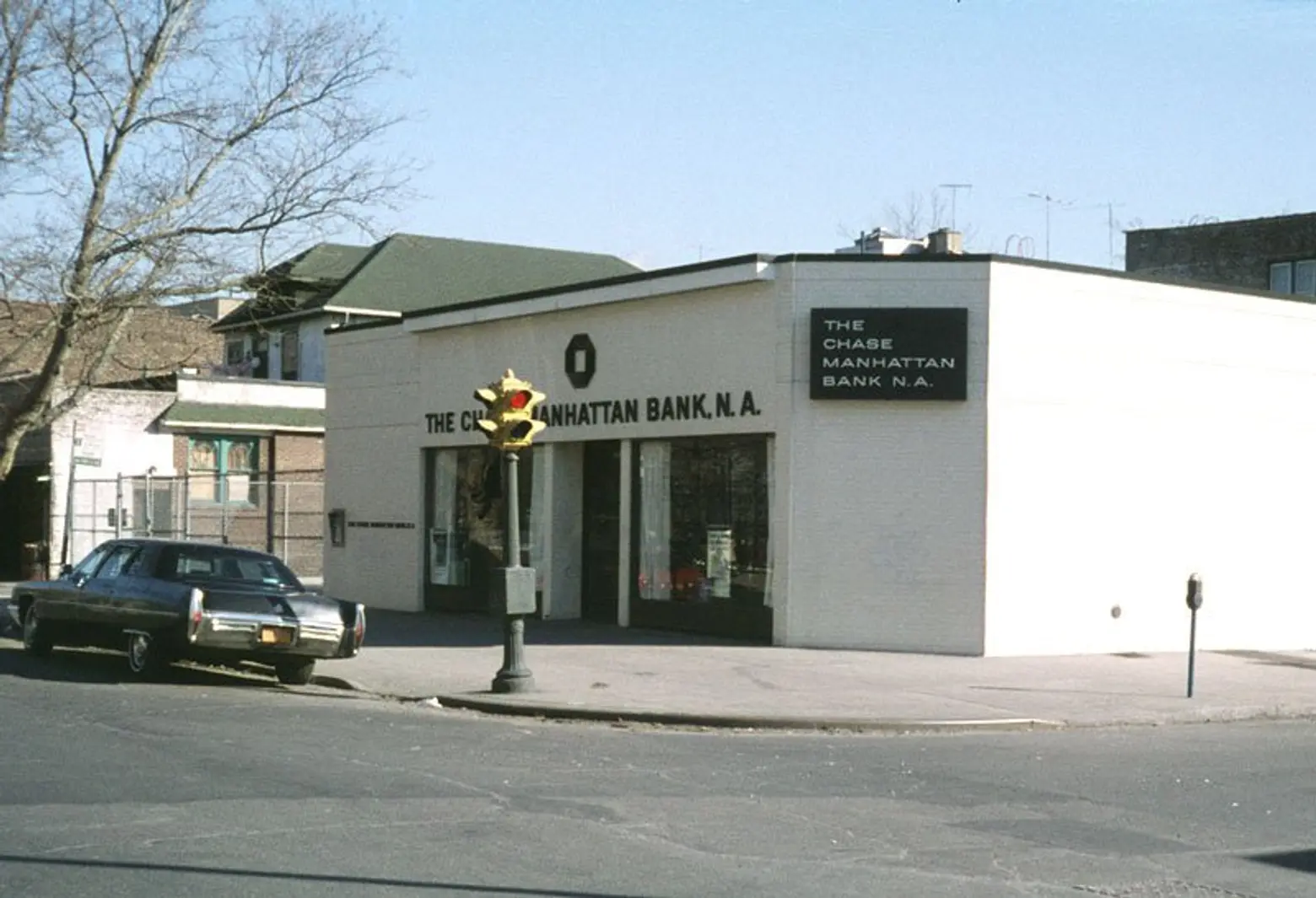 Photo of the Chase Manhattan Bank at 450 Avenue P taken in 1975 by Larry Fendrick, who claims he was witness to the original event three years earlier. Via Wiki Commons.
Photo of the Chase Manhattan Bank at 450 Avenue P taken in 1975 by Larry Fendrick, who claims he was witness to the original event three years earlier. Via Wiki Commons.
From these unconventional origins emerged a bank robbery scheme that deviated from plan almost from the first moment. On that hot August day, they chose a Chase Manhattan bank on East 3rd Street and Avenue P in Gravesend, Brooklyn. But when Westerberg saw a police car nearby, he fled the scene before the robbery even began.
The bulk of the bank’s money had already been picked up by armored car and taken off site, leaving just $29,000 on hand. As they were about to leave, several police cars pulled up outside the bank, forcing Wojtowicz and Naturile back inside. With no clear way of escaping, they ended up taking the seven bank employees hostage for 14 hours.
What made this attempted robbery so unusual, however, was more than just bad planning and bad luck. An unlikely bond formed between the robbers and the bank teller hostages. The robbers made a series of demands of the police and FBI that included everything from pizza delivery to the bank to a jet at JFK to take them to points unknown. And word leaked out that Wojtowicz was robbing the bank to pay for a sex change operation for Ernest Aron, who was even brought to the site of the hostage stand-off in an attempt to get the robbers to give up.
Throughout all of this, Wojtowicz became an unlikely media-celebrity, an anti-hero who taunted the police with shouts of “Attica” (referring to the recent bloody Upstate prison standoff in which several prisoners and guards were killed by what was later determined to be an unnecessarily overzealous and brutal state trooper raid), and seemed to champion the plight of the bank tellers and fast food delivery workers with whom he interacted. A growing crowd gathered and TV cameras swarmed to the site.
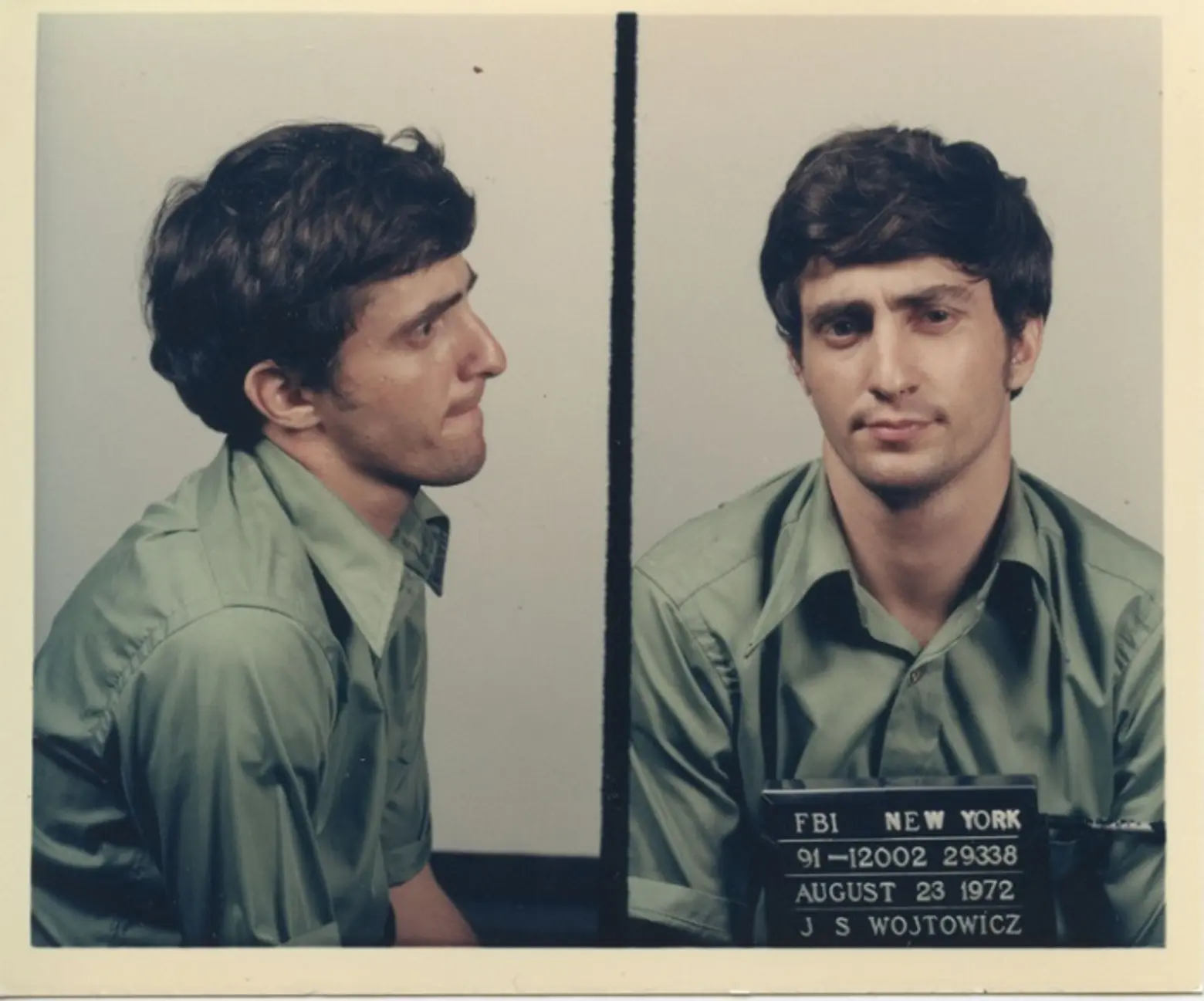 Wojtowicz’s 1972 mugshot, courtesy of The Dog.
Wojtowicz’s 1972 mugshot, courtesy of The Dog.
Unsurprisingly, this did not have a happy ending. En route to JFK, Salvatore Naturile, who was only 19, was shot and killed by the FBI. Wojtowicz claims that he made a plea deal which the court did not honor, and he was sentenced to 20 years in prison, of which he served 14 years.
However, given the intense interest in the robbery and the improbable cult-hero status Wojtowicz achieved, the story did not end there. A story in Life Magazine about the incident called “The Boys in the Bank” (an allusion to the 1968 Mart Crowley play, “The Boys in the Band,” a landmark of gay theater) by Peter F. Kluge and Thomas Moore became the basis for the 1975 feature film, “Dog Day Afternoon,” directed by Sidney Lumet and written by Frank Pierson. Al Pacino, in what came to be one of his most celebrated roles, played Wojtowicz, and John Cazale played Naturile (ironically, both starred in the Godfather, which Wojtowicz had seen the morning of the robbery and upon which he based some of his plans). The movie garnered six Academy Award nominations and became an icon of 70’s cinema.
While Wojtowicz’s story became the stuff of pop culture legend, Wojtowicz himself did not prosper much from his enduring notoriety. He earned $7,500 for the sale of the rights to the story, and 1% of the profits from the film (that money was used to fund the gender-reassignment surgery for Ernest Arons, whose name changed to Elizabeth Eden). He disputed several elements of the film, though he supposedly refused to speak to the screenwriter who was seeking details for the script (he did, however, say that Pacino and Cazale accurately portrayed him and Naturile).
At the time of the nascent gay liberation movement, Wojtowicz’s actions were fiercely debated by fellow advocates at the Gay Activists Alliance Firehouse as to whether or not they supported the goals of the movement. Wojtowicz got out of jail in 1987; sadly, Elizabeth Eden died shortly thereafter of AIDS. Wojtowicz himself was said to have been living on welfare in Brooklyn when he died of cancer in 2006.
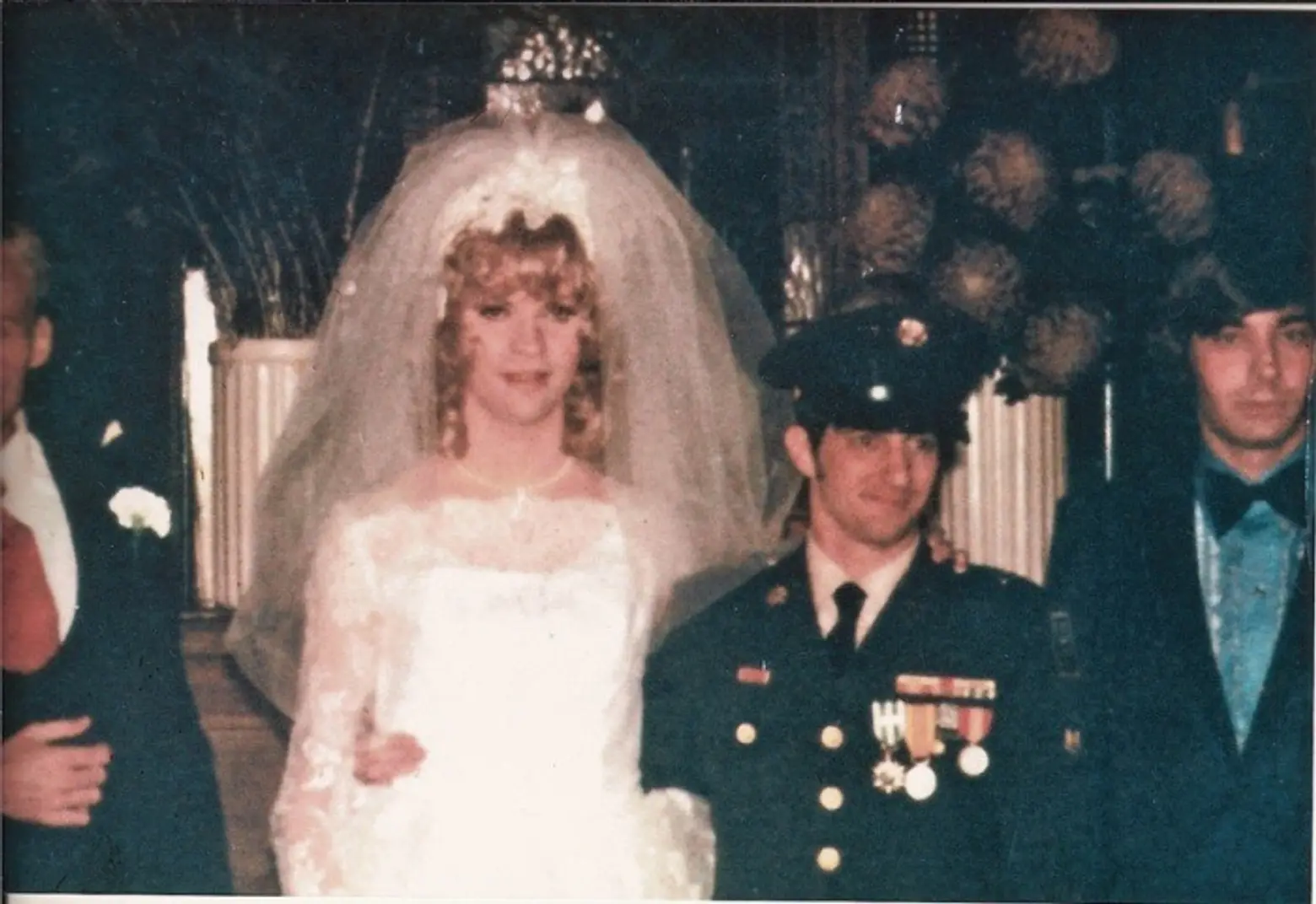 A scene from “The Dog” in which Wojtowicz weds Elizabeth Eden. Courtesy of The Dog.
A scene from “The Dog” in which Wojtowicz weds Elizabeth Eden. Courtesy of The Dog.
In 2014, a documentary on the events called “The Dog” was released. Co-directors Allison Berg and Frank Keraudren had followed Wojtowicz around for an entire decade prior to his death to make the film, which incorporates a good deal of archival footage and images.
+++
This post comes from the Greenwich Village Society for Historic Preservation. Since 1980, GVSHP has been the community’s leading advocate for preserving the cultural and architectural heritage of Greenwich Village, the East Village, and Noho, working to prevent inappropriate development, expand landmark protection, and create programming for adults and children that promotes these neighborhoods’ unique historic features. Read more history pieces on their blog Off the Grid.
RELATED:
Get Insider Updates with Our Newsletter!
Leave a reply
Your email address will not be published.

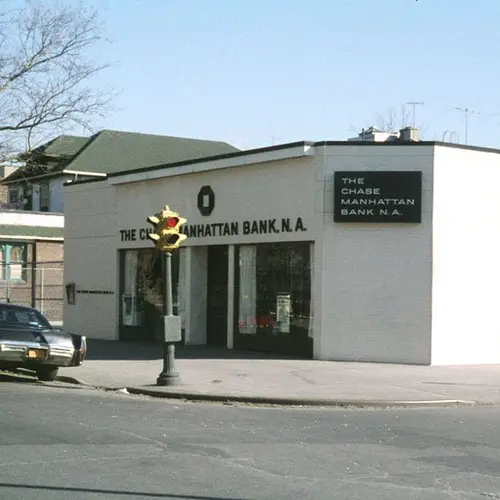
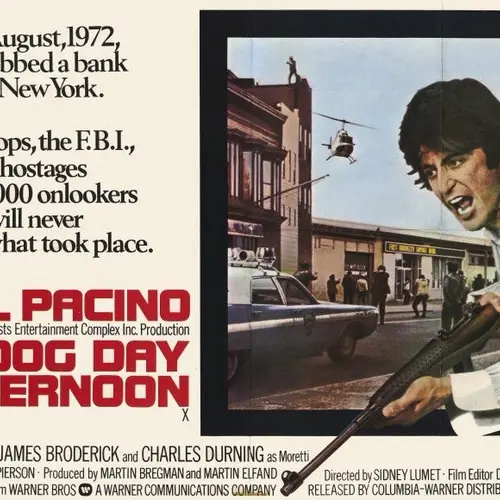
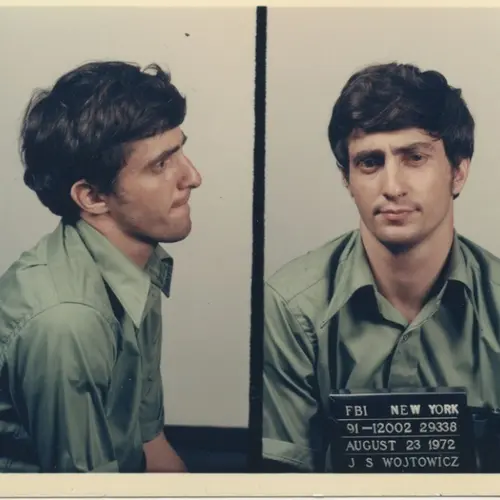
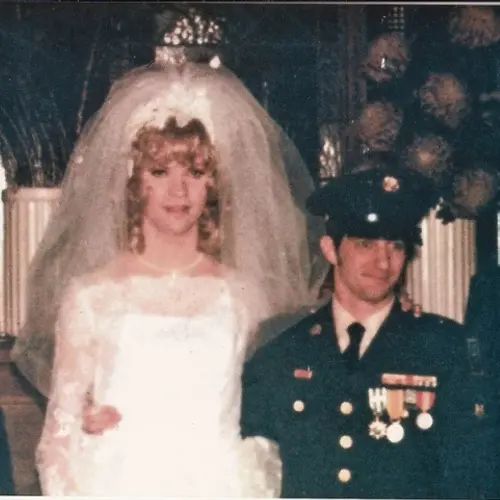
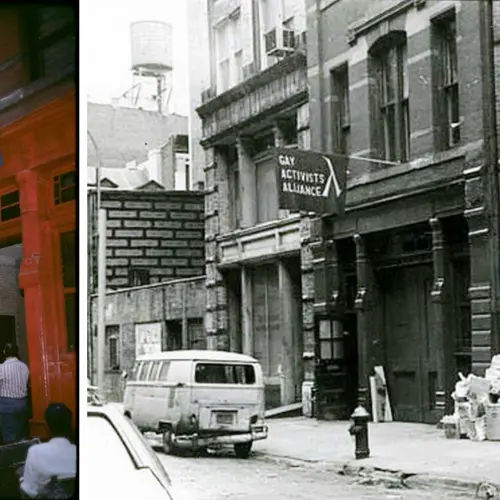


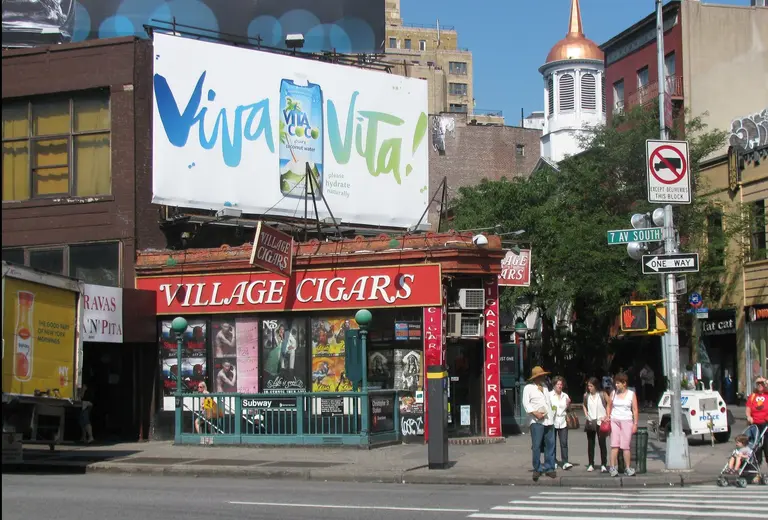
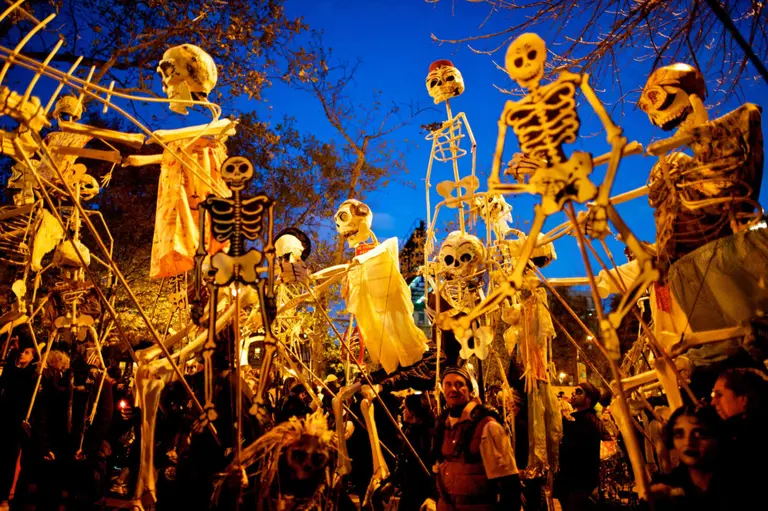
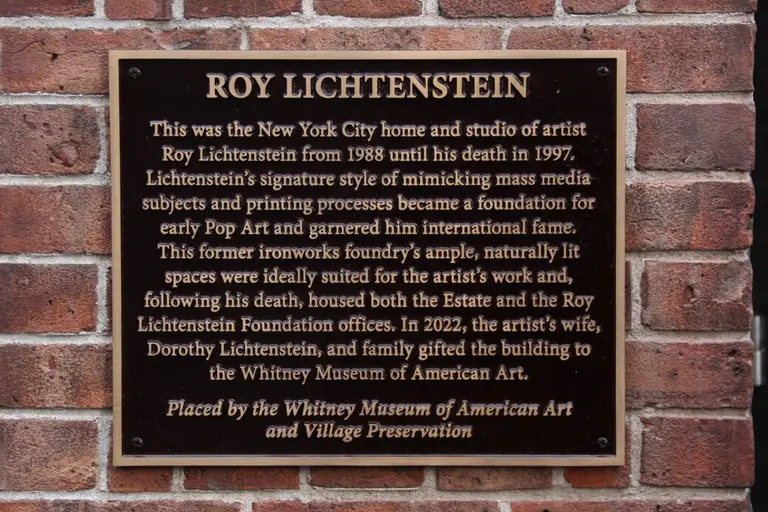
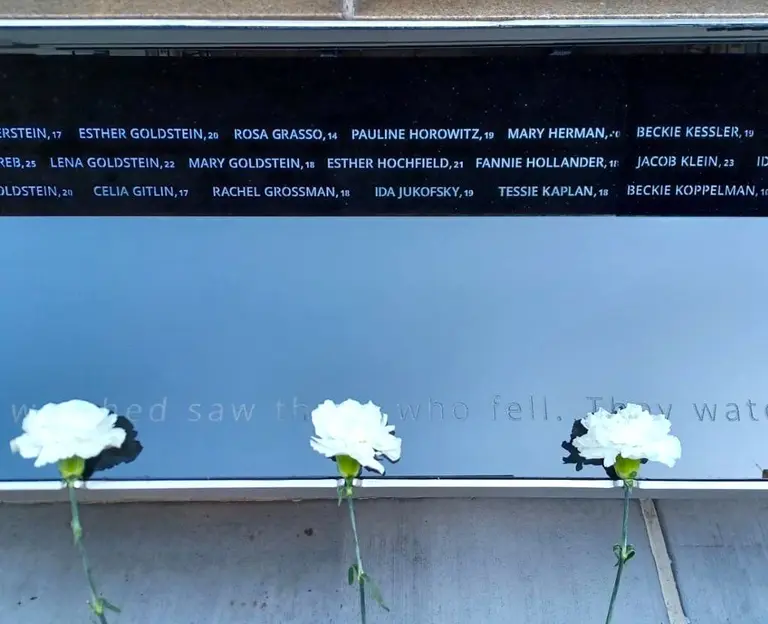





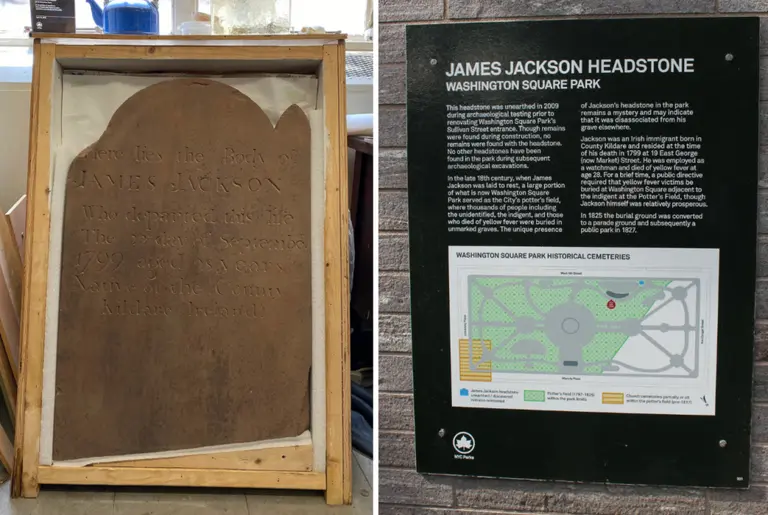
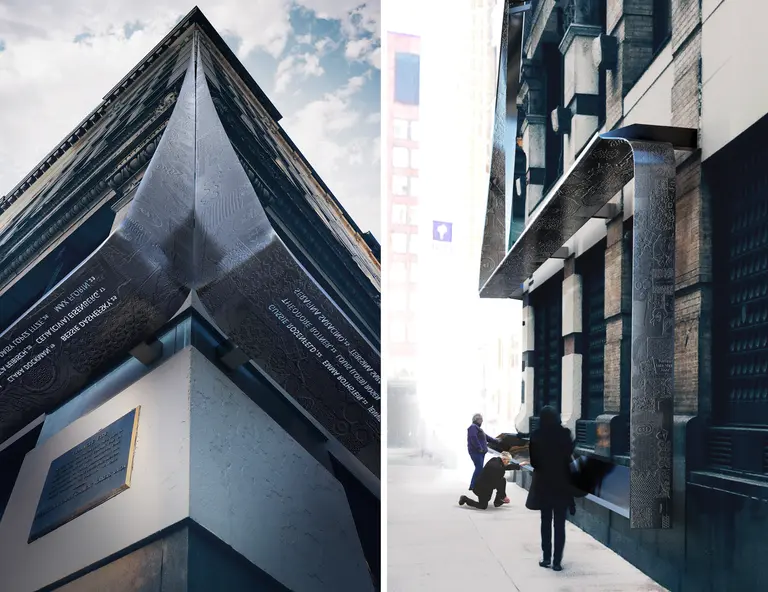
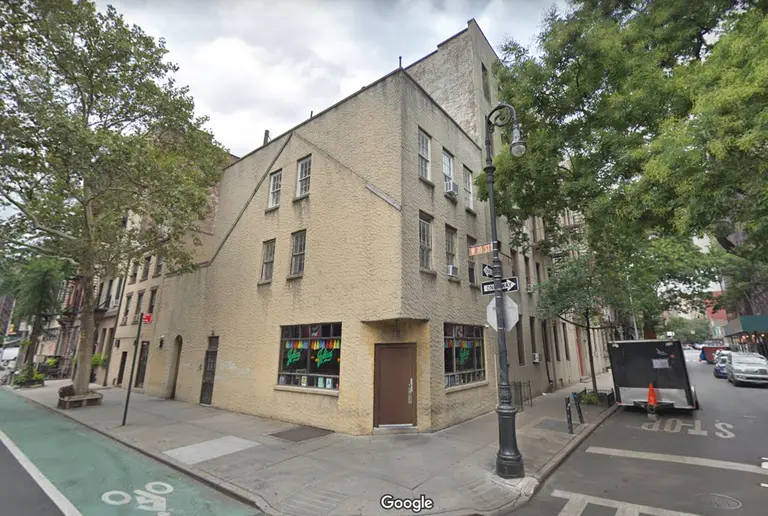
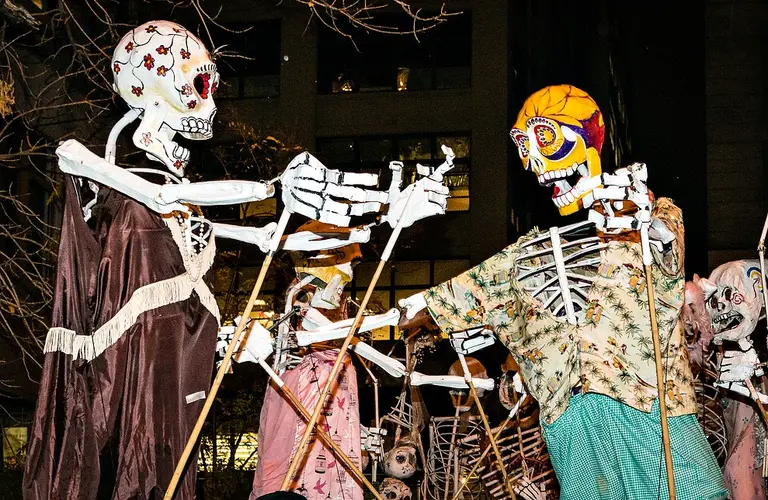
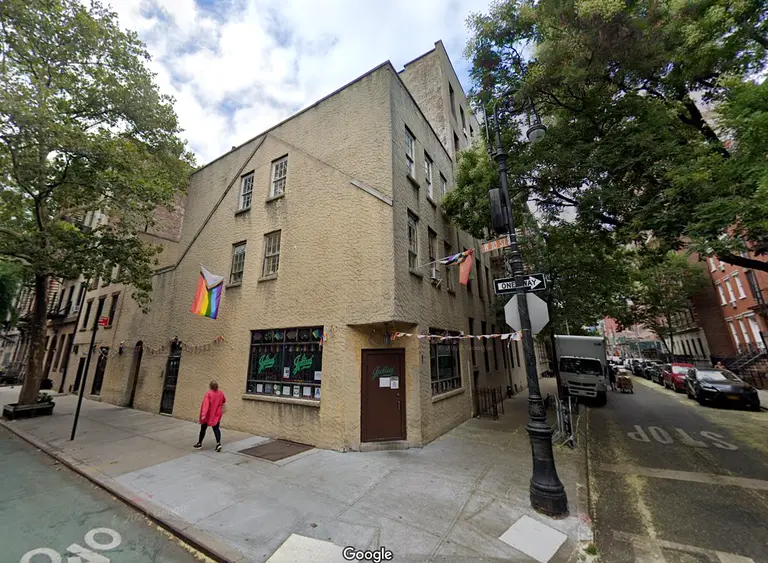
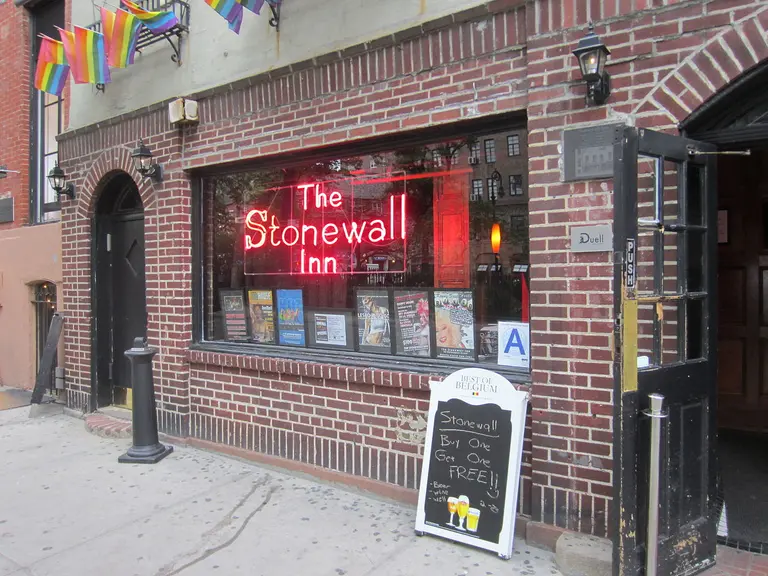












I knew Salvatore Antonio Naturile, one of the principal players in the actual Dog Day Afternoon. Here’s my story: http://bit.ly/2bIpa1P